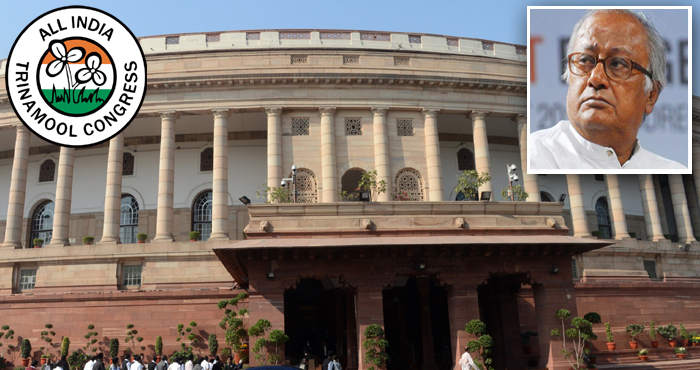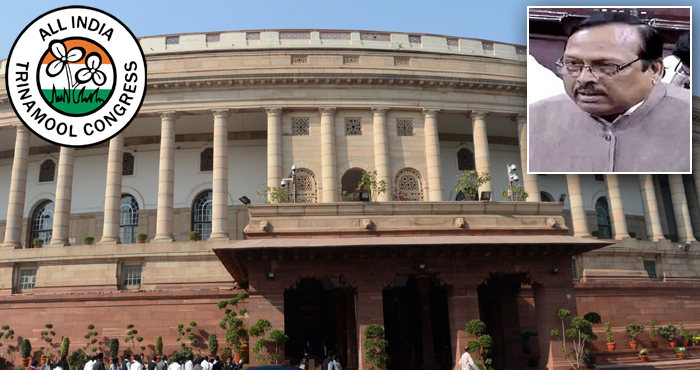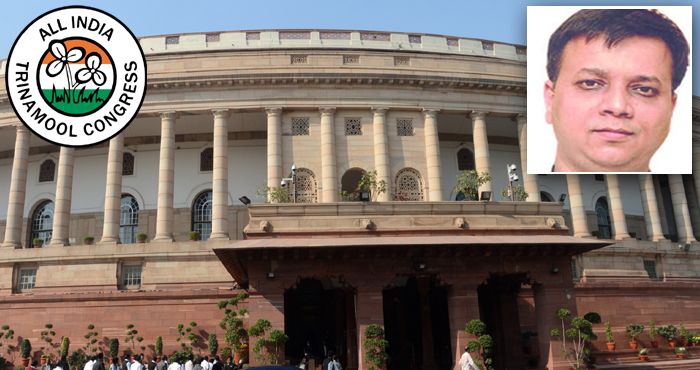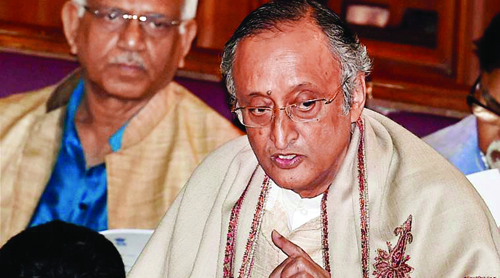FULL TRANSCRIPT
Sir, yesterday the Rajya Sabha took up a discussion on the Finance Bill, 2017 and they have sent back the Bill with five different amendments.
What is the procedure in the case of a Money Bill? Article 109 (4) says that “if the House of the People does not accept the recommendation of Council of States, the Money Bill shall be deemed to have been passed by both Houses in the form in which it was passed by the House of the People without any of the amendments recommended by the Council of States.”
But there is also another provision in the rules to which I draw the attention of the Finance Minister. He can also accept some of the recommendation of the Council. In the Article 107 it says “if the House accepts any amendment or amendments as recommended by the Council the Bill shall be deemed to have been passed by both Houses with the amendment or amendments as recommended by the Council.
This means, this House can also accept the amendments that has been placed by the Rajya Sabha. Now, the question is whether the government should respond to the call of the Council of States and accept some of the recommendations that have been made.
What are the recommendations that have been made? Before I speak on that, let me point out that at the time of discussion on the Finance Bill, we had mentioned that many Acts had been amended through the Finance Bill which should not have been done. Apart from ten Acts listed in the Bill, large number of changes in the matter of tribunals was made. We had said that this need not have been included in the Finance Bill, which is a Money Bill. The government stormed over all our Amendments and went ahead.
We also mentioned that one of the provisions in the Finance Bill is to link the Aadhaar number to the PAN Card; we had objected. But since then Supreme Court has given an observation, that for any public interest programme, like the mid-day meal scheme or for receiving subsidies, Aadhaar Card should not be made compulsory. We had raised this issue about the Aadhaar Card being made all powerful.
Another point has been made that whether overuse of Aadhaar Card is leading to leakage of data and breach of privacy of individuals. It will contain all my details and if everything is linked to the Aadhaar Card, government will have at its fingertips any facts about the private accounts of any individual. We object to this.
Another thing we had objected at the time of passing the Finance Bill in Lok Sabha, was the matter of electoral bonds and electoral funding. It has been included in the Finance Bill. There should be a separate law for ensuring transparency in electoral funding. Instead, it has been included in this ‘omnibus’ Finance Bill.
Now, having made these points let me go to the actual amendments made by the Rajya Sabha. One is, Rajya Sabha has said that in Section 132 (A), the Amendment is to Clause 51. It is to be deleted according to Rajya Sabha. Clause 51 deals with, Section 132 (a) of the Income Tax Act – the power to requisition books of accounts etc. In the Finance Bill it was mentioned that for the removal of doubts it is hereby declared that the reason to believe as recorded by IT authorities under this section will/shall not be any person or any authority. So power to requisition books will be there and it will not be revealed to any individual. I think it is a direct assault on the right of the individual and the Rajya Sabha has recommended that this assault should not be there.
There are two more recommendations that the Rajya Sabha has made regarding Clause 52 and Clause 53 both of which deal with section 133 and 133 (a) of the Income Tax Act; they also should be removed . Section 133 of the Income Tax Act is the power to call for information and section 133A is power of survey. It is draconian that somebody will have the power to move anything without having to disclose the reason. This is draconian and goes against the rights of the individual. So, in that sense, I think the Finance Minister should accept the recommendation.
Sir, the main matter, main objection that we have is with regard to electoral funding as has been mentioned in Clause 154 of the Finance Bill as passed by Rajya Sabha. There the amendment has suggested that the word we shall not be above 7.5% of net profit of the last three financial years. The Finance Bill as placed by the Finance Minister says that not every company shall disclose in its ‘Profit and Loss’ account the total amount contributed by it under the Section during the financial year. In this case, if a company contributes whole of its profit to the ruling party then that would be legally sanctionable. The Rajya Sabha amendment calls upon a restriction of this contribution by political parties.
The other thing is regarding The Company’s Act, where the Rajya Sabha has suggested that provided further that there shall be a requirement to disclose the names of the political parties to which contributions have been made. There is no such restriction in the present law; it says, after line 40, that a company may make contribution through any instrument issued in pursuance to any scheme notified under any law for the time being in force for the contribution to the political party. The main demand of the Rajya Sabha is that the names of those who are contributing should be revealed. I think that this is a very reasonable amendment. The Finance Minister himself belongs to the Rajya Sabha; he may once go through the wishes of the Council of States and agree to at least one of the recommendations of the House to which he belongs. It would only be democratic.
Madam, our contention is that the bicameral system is there for checks and balances. Just because a party has the majority in the Lok Sabha, it should not ride roughshod over the opinions of the other House. That’s why it is my humble submission, Madam, that I mentioned these matters which have been done. I am again saying that the procedures of this House are being violated in the sense that we are making the Finance Bill a comprehensive compendium of different laws instead of a plain Bill to announce the tax proposals of the Government. In general, we have objected to it and again we support the amendments made in the Council of the States.





